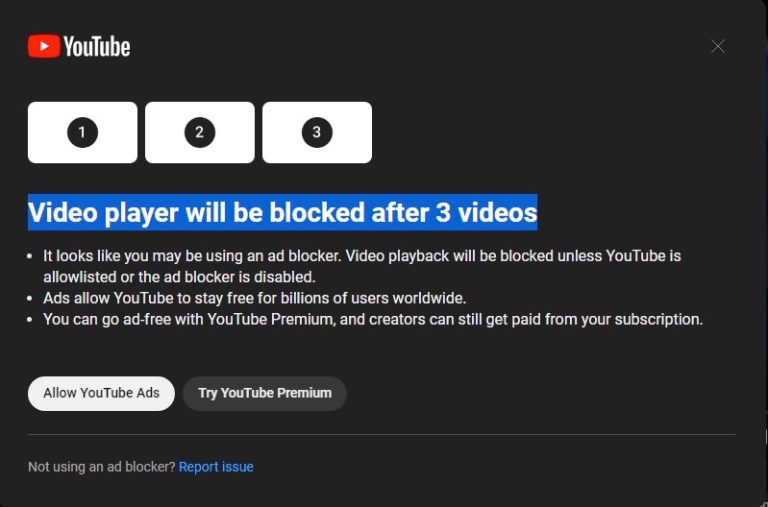“We’re running a small experiment globally that urges viewers with ad blockers enabled to allow ads on YouTube or try YouTube Premium.” That’s what YouTube said in late June, explaining why some ad blocker users would be barred from watching YouTube videos. By early November, that policy had expanded, and YouTube will be applying it worldwide.
Tech. Entertainment. Science. Your inbox.
Sign up for the most interesting tech & entertainment news out there.
By signing up, I agree to the Terms of Use and have reviewed the Privacy Notice.
“In extreme cases, where viewers continue their use of ad blockers, playback will be temporarily disabled,” YouTube said in June. “We take disabling playback very seriously and will only disable playback if viewers ignore repeated requests to allow ads on YouTube.” Expect similar behavior on your computers if you’re using an ad blocker.
I explained at the time that YouTube blocking ad blockers made sense for what YouTube is. It’s a platform anyone can use to upload clips that anyone can watch. But the free version needs to pull in ad money to remain viable.
I also said that Google is partly to blame for ad blockers becoming so popular in recent years. The ad quality and experience over the years, on YouTube and other places, is why so many people love their ad blockers. Add user tracking, which Google also does, and you have plenty of reasons to want to block ads.
But Google won’t stop showing ads on YouTube or in other places. And it looks like Google is happy with its ad blocker ban experiment. It’s expanding the effort globally, which means no ad blocker user is safe. If you use a program to stop ads on YouTube, Google is coming after you.
 YouTube prompt telling a user in June 2023 that video playback will be blocked because of ad blocker use. Image source: Reddit
YouTube prompt telling a user in June 2023 that video playback will be blocked because of ad blocker use. Image source: Reddit
YouTube communications manager Christopher Lawton confirmed to The Verge the Google-owned video streaming service launched “a global effort” to encourage users to allow ads or try YouTube Premium. As a reminder, YouTube Premium cost increased in mid-July, a few weeks after the ad blocker test started.
What happens next is easy to guess. If you’re using an ad blocker to avoid YouTube ads, you’ll start running into Google’s prompts that inform you why playback has been stopped. You’ll be able to resume playback initially. But then YouTube might block all access until you’ve either allowed ads on YouTube or upgrade to Premium.
Lawton told The Verge that the use of ad blocers violates the platform’s terms of service. “Ads support a diverse ecosystem of creators globally and allow billions to access their favorite content on YouTube,” he said, which is understandable. Creators have to make a living, and Google’s ads help pay for that.
But, again, the ad experience can be frustrating, like the unskippable commercials the platform supports. You get the same type of ads on TV, too.
That doesn’t mean ad blockers will stop working. What’s more likely to happen is that we’ll witness a cat-and-mouse game between ad blockers and YouTube.

